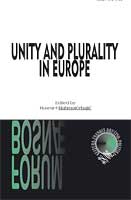The Resources for Ecumenical Thought in Chinese Islam
The Resources for Ecumenical Thought in Chinese Islam
Author(s): Sachiko MurataSubject(s): Christian Theology and Religion
Published by: Međunarodni forum Bosna
Keywords: Islam in China; Hinduism; Buddhism; the ecumenical spirit of the Chinese Muslims
Summary/Abstract: I understand “ecumenical thought” to be thinking that attempts to appreciate and acknowledge the commonalities among religious traditions. Ecumenical thought is largely a modern enterprise. It arose in Europe and North America mainly among Christians. By and large, it attempts to overcome the tendency toward exclusivism that is very strong in Christianity and among so-called “fundamentalists” everywhere. By exclusivism I mean the belief that one’s own tradition is the only possessor of truth, and that other traditions are inadequate, or simply false. In promoting ecumenical thought, people usually have in mind overcoming exclusivism of a religious kind, but we should not forget that many non-religious people also have exclusivist views–believers in scientism or ideology, for example. Today, however, I want to talk about ecumenism as a religious issue. The question it poses is basically this: How can believers in one religion acknowledge the truthfulness and legitimacy of very different teachings found in other religions? How can believers in one religion accept that there are other valid ways to reach salvation? I will not begin to address the many, complicated issues that are involved in this discussion. Instead, I will simply provide an example of how the Muslim community in China dealt with religious diversity in a way that can provide much food for thought for us today.
Journal: Forum Bosnae
- Issue Year: 2006
- Issue No: 38
- Page Range: 42-54
- Page Count: 13
- Language: English
- Content File-PDF

